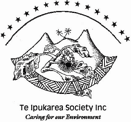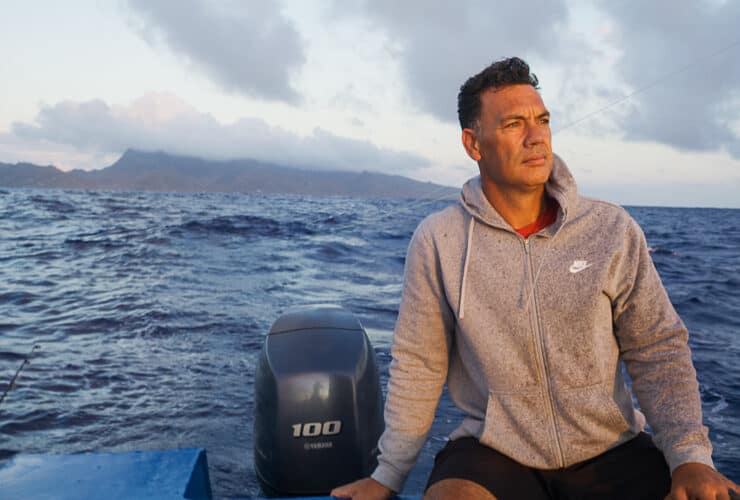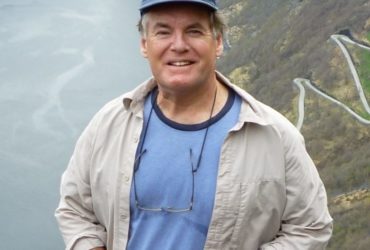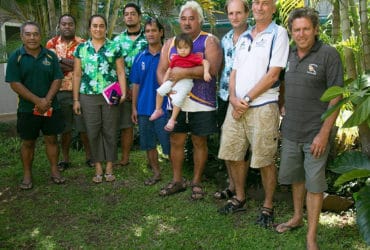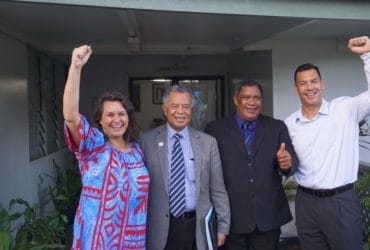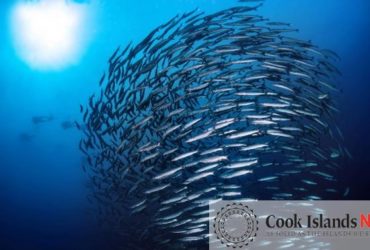Tonga to host Regional Workshop on Law and Contract Negotiations for Deep Sea Mining
From March 11-15th 2013, the Kingdom of Tonga is to host a regional workshop on “Law and Contract Negotiations for Deep Sea Minerals” in Nuku’alofa, on behalf of the SPC-EU Pacific Deep Sea Minerals Project.
The EU-funded Pacific Deep Sea Minerals Project managed by SOPAC, the Applied Geoscience & Technology Division of the Secretariat of the Pacific Community, involves 15 Pacific Island Countries including: Cook Islands, Federated States of Micronesia, Fiji, Kiribati, Marshall Islands, Nauru, Niue, Palau, Papua New Guinea, Samoa, Solomon Islands, Timor Leste, Tonga, Tuvalu and Vanuatu.
Hannah Lily, Legal Adviser for the Pacific Deep Sea Minerals Project, says a main objective of the Tonga workshop is to provide government officials with the knowledge, skills and confidence to negotiate effectively with well-resourced deep sea mining companies.
Ms Lily says the Pacific Deep Sea Minerals Project stresses the need for countries to first put in place robust law and regulatory mechanisms for the national management of deep sea minerals before any negotiations take place.
“We strongly recommend that countries have these mechanisms in place before any individual project negotiations commence. Dedicated seabed minerals legislation will assist the country meets its obligations under international law, such as the protection of the marine environment. It will also provide clarity and stability to that country’s operating environment and what it expects from mineral companies,” she says.
“Seabed mineral resources represent an exciting new economic opportunity for Pacific Island States. But, in order to make the most of this opportunity, governments will need to find responsible exploration and mining companies, and work to set terms that provide sufficient protection and financial return to the country,” she says.
Ms, Lily says one of the main objectives of the Pacific Deep Sea Minerals Project is to enable countries to make informed decisions about whether or not to give out exploration and mining licences for their deep sea minerals resources.
“If those licences are issued it is critical that they contain terms that protect the country from environmental damage, protect the people from impacts on their livelihoods, and ensure a proper financial return that will be collected and managed responsibly,” she says.
Dr. Taaniela Kula, Deputy Secretary for Tonga’s Natural Resources at the Ministry of Lands Survey and Natural Resources, believes the upcoming workshop will be critical for public administrators throughout the region.
“I don’t want to speak on behalf of all Pacific Islanders but I don’t think that negotiation skills are something that Pacific Islanders are particularly good at. From my perspective Pacific Islanders are brought up to respect others and especially foreigners. With long-term management issues like deep sea minerals I think there can be a tendency to feel inferior in front of big companies that come with a lot of status, wealth and technical knowledge,” he says.
Mr. Akuila Tawake, Manager of the Pacific Deep Sea Minerals Project, says the regional initiative has been specifically designed to operate as an independent adviser. “The role of the project is to provide countries with the relevant information and advice they need to make informed decisions whether they want allow deep sea mining within their national jurisdictions,” he says.
Although the 4-year Pacific Deep Sea Minerals Project is scheduled to end in 2014, Mr. Tawake says Pacific Island countries will still need to have the capacity to deal with this important resource management issue over the next 20 to 30 years.
“We are trying to assist the Pacific Island countries to learn from the mistakes that have been made in other industries like fisheries and on land mining. But ultimately, after the Project has provided its advice and support, it is up to the countries to decide whether or not they want to proceed with mining their deep sea mineral resources,” he says.
“Over the last two years we have done our best to engage with all stakeholders in each of the countries. Across the countries we have been holding “National Deep Sea Minerals Stakeholder Consultation Workshops” where we invite all levels of stakeholders including a community leaders and NGOs.
“For the Tonga workshop we are inviting representatives from governments, civil society, mining companies and some experts from outside the region. This holistic approach signifies that we are serious about taking an inclusive approach to work with all stakeholders interested in deep sea minerals in the Pacific,” he says.
Teina MacKenzie, from the Te Ipukarea Society in the Cook Islands, is one of the stakeholders representing interested civil society organisations the Tonga workshop. In September 2012 the Te Ipukarea Society collaborated with 20 other non-government and academic institutions to pass Resolution 79 at the World Conservation Congress in Jeju, Korea, which focuses on the protection of deep-ocean ecosystems and biodiversity from the threats of sea bed mining.
Because of the rapidly growing commercial interest in deep sea minerals Mrs. MacKenzie says it’s even more critical for civil society organisations to get directly involved in this process as quickly as possible.
“We need to be involved to make sure that legislation is robust and there are no loopholes. It’s important that communities in all the countries really engage in the process of developing the legislation, frameworks and policies in each of their own countries. Transparency will come when the communities really understand what the issues are. We all need to be a part of this conversation,” she says.
Mrs. MacKenzie says that Pacific Island governments also have an obligation to get the necessary resources, information and systems in place before they start making hurried negotiations with the private sector.
“I can understand civil society organisations saying “Why are we even taking this up when we are not prepared for it?” This is what scares communities. They look at Government making decisions without consultation and then not having the means or the resources to be able to do it effectively. If every country really wants to develop this resource they really need to prioritize and give it the dedicated human resource and expertise that is required,” she says


